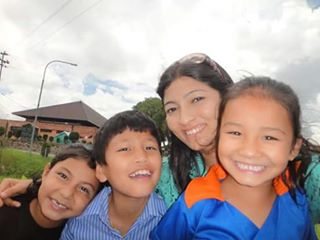Thousands of people live amid this bustling city; each having their own set of stories to tell. The diverse stories of dreams, hopes, aspirations, happiness and sadness is what makes the city of Kathmandu the city of tales. However a story of a young girl with a big heart and a motive to serve the society and its people; especially the disabled stands out. Sabita Upreti, the founder of Special School for Disabled and Rehabilitation Center (SSDRC), a Kathmandu based non-profit organization has become prominent with her exemplary and selfless deeds and the story she shares is truly inspirational for all of us.
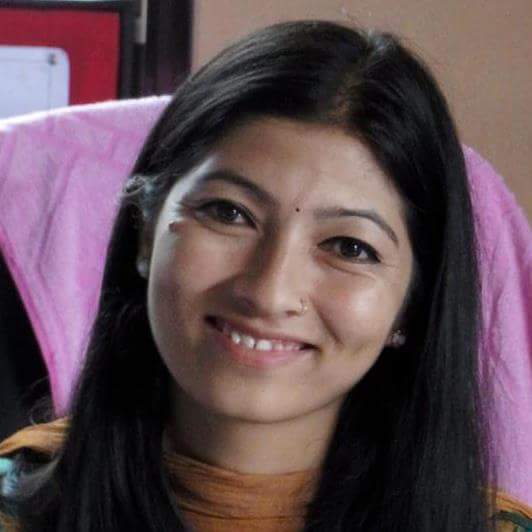
On my short visit to SSDRC, she shared an incredible story of how she founded the organization. Born in Dolakha, she rememberes how her childhood was full of struggles and scarcity. Having completed School leaving Certificate (SLC) exams, she moved to Kathmandu for her further studies. During those days, she worked as a teacher and a journalist. Afterwards, she joined National Disabled Fund as a Center Management Officer where the path towards SDDRC was actually paved. She shared, “On my field visit, I came across families who locked their sons and daughters in chains just because they were disabled and autistic. They were in the worst conditions eating their own excreta and urine to satiate their hunger and quench their thirst. This was something that touched my heartâ€. Another story she shared was about seeing a ragged and disabled child who picked up a newspaper and started reading it from the dirt pile in the road. She said, “An instant thought that came into my mind that I must open up a school so that I could bring that child to school as soon as possible and facilitate him with education.â€
It all started with an emotion that eventually urged Sabita to open up an NGO. However, a young girl with no knowledge of how an NGO runs, without any capital, training, networks and expertise took that bold step just with a hope of making the lives of disabled better. She resigned from her job, convinced her parents of what she wanted to do next and asked every of her friends and family to help her financially by giving her the money that they would spend in her marriage as dowry or gifts. Hence she collected 5 lakh rupees and paved the way to this new journey.
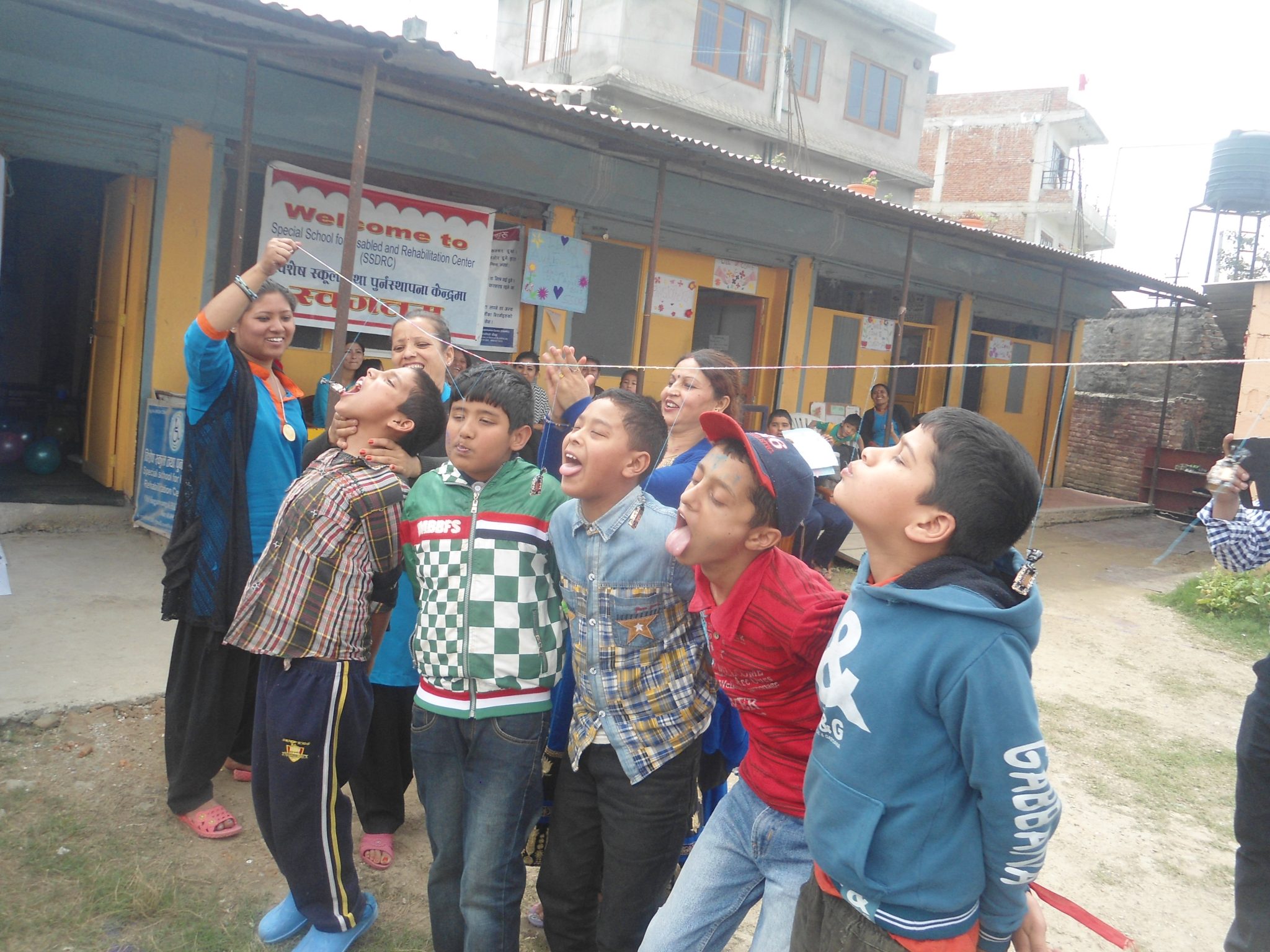 She started SSDRC in the year 2010 with only 2 autistic children. “Initially it was very difficult for us to reach people and make them understand our purpose. It was certainly not easy to gather children because people would not trust us. Also the landlords were reluctant to provide us the space for rent,†she recalled those most challenging days. “People were not familiar with the word ‘autism’ and people with autism became the underprivileged just because of the ignorance of their family and society,†she added. Also there was no policy and special curriculum for the autistic people.
She started SSDRC in the year 2010 with only 2 autistic children. “Initially it was very difficult for us to reach people and make them understand our purpose. It was certainly not easy to gather children because people would not trust us. Also the landlords were reluctant to provide us the space for rent,†she recalled those most challenging days. “People were not familiar with the word ‘autism’ and people with autism became the underprivileged just because of the ignorance of their family and society,†she added. Also there was no policy and special curriculum for the autistic people.
So what is Autism? Autism Spectrum Disorder (ASD) is a serious neurodevelopmental disorder that impairs child ability to communicate and interact with others. Its common symptoms include problem in social and non-verbal communication, delay in learning, stereotyped and repetitive use of language, limited interests in games and other activities and lack of empathy. It is estimated that 1% of total population in the world suffer from ASD.
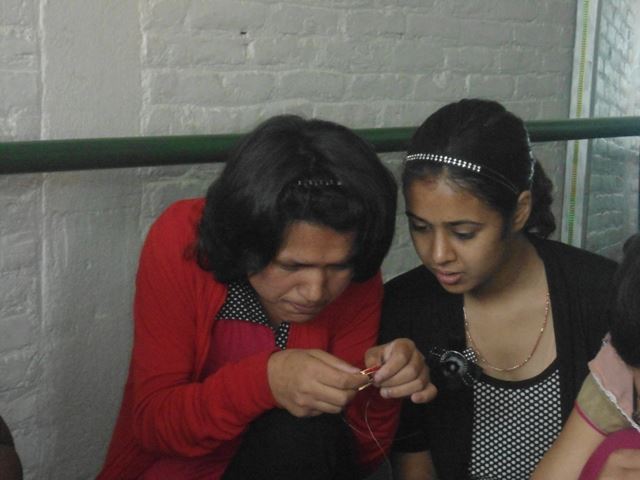 School In charge in SSDRC, Rupa Tamang shares that these children should be treated with utmost care and patience. They currently have 26 staffs in total who look after the 45 children in a day care school. Once a children approaches the organization, the first step they take is diagnose whether they have ASD or not. A team of psychologist and pediatricians checks them, makes their individual profile and differentiate them to which class they fit in. In SSDRC, there are four classes. The classes range from D, C, B, and A. Children are divided into such groups as per the level of ASD they have. Each class has been designed in such a way that the children get to learn as per their capacity and individual curriculum is emphasized by making individual education plan. They aim to uplift the living standards of such children through therapies like physiotherapy, speech therapy, music therapy, occupational therapy, art therapy and dance therapy.  Also vocational and computer classes along with sports and other daily activities makes learning easy. Each classroom has a set of rules that all are expected to follow. As children reach the “A†level, they are provided with the education that normal children get.  If they do exceptionally well, they are transferred to other schools and are rehabilitated in the society. Alisha Neupane is one of SSDRC’s trainees who now works as an assistant there. She was also diagnosed with ASD.
School In charge in SSDRC, Rupa Tamang shares that these children should be treated with utmost care and patience. They currently have 26 staffs in total who look after the 45 children in a day care school. Once a children approaches the organization, the first step they take is diagnose whether they have ASD or not. A team of psychologist and pediatricians checks them, makes their individual profile and differentiate them to which class they fit in. In SSDRC, there are four classes. The classes range from D, C, B, and A. Children are divided into such groups as per the level of ASD they have. Each class has been designed in such a way that the children get to learn as per their capacity and individual curriculum is emphasized by making individual education plan. They aim to uplift the living standards of such children through therapies like physiotherapy, speech therapy, music therapy, occupational therapy, art therapy and dance therapy.  Also vocational and computer classes along with sports and other daily activities makes learning easy. Each classroom has a set of rules that all are expected to follow. As children reach the “A†level, they are provided with the education that normal children get.  If they do exceptionally well, they are transferred to other schools and are rehabilitated in the society. Alisha Neupane is one of SSDRC’s trainees who now works as an assistant there. She was also diagnosed with ASD.
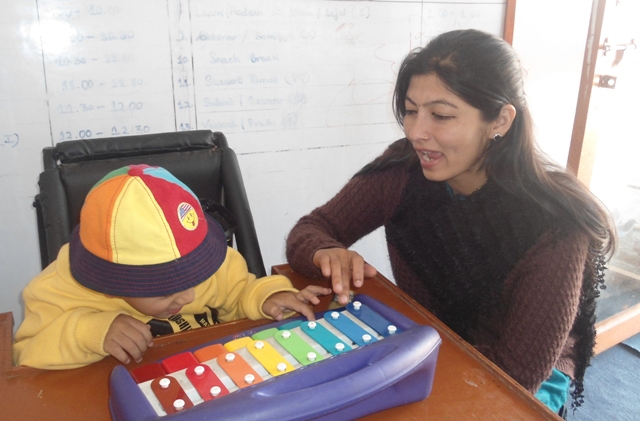 “It is very difficult for families to come up. First of all, they hide the real cause in the fear of being not accepted and boycotted by society. Also those children who are taught here are expected to do so well as to become doctors or engineers,†said Rupa. Hence there is a huge gap between expectations and reality. She added, “Such children need special care and we should all make them the part of our own lives so that they can live their life in such a way that they don’t need others’ help to do their basic chores.â€
“It is very difficult for families to come up. First of all, they hide the real cause in the fear of being not accepted and boycotted by society. Also those children who are taught here are expected to do so well as to become doctors or engineers,†said Rupa. Hence there is a huge gap between expectations and reality. She added, “Such children need special care and we should all make them the part of our own lives so that they can live their life in such a way that they don’t need others’ help to do their basic chores.â€
SSDRC is actively working for the people with ASD syndrome. Currently, the school has 45 children who receive day care services and 500 more are in the waiting list. It has organized awareness campaign and counselling sessions, provided trainings and has been working with the government to form plans, policies and curriculum for children with ASD. They also provide vocational trainings to make children self-dependent. A special school has been opened in the eastern region of Nepal in their initiation. They have been felicitated with many national and international awards. Among many is the award from the International Council for Physically and Mentally Challenged Students Quality Circle, Mauritius.
With this, SSDRC aims to extend to all the 7 provinces in Nepal and extend their network and helping hands all over the nation. Its aims to be a pioneer in social service in whole Asia and wants to be established as a training and research center as well. However with all these plans, they also have a major problem relating to funding and spacious place to operate the organization. The major source of income here is from the sale of bags, caps, khada, bangles, muffler and other items that they produce on their own, and donations from people in cash and kind. However it is insufficient to run a not for profit organization without a regular funding or a regular donor agency. Currently, they are also in search of a spacious place for rent for the smooth operation of their service.
When asked about the changes that her work life has made, she expressed that passion needs to be there for whatever one does in life. She added,†I have become more optimistic and patient as a person. The self-satisfaction and happiness that one gets from serving people is un-explainable and despite many hardships this is what keeps me moving.â€
At the end, she urged everyone to make their life purposeful. She said,†Let’s all give 5% or 10% of our time to society and its development. It is our responsibility as well.â€
Presented By: Anusha Kadel

